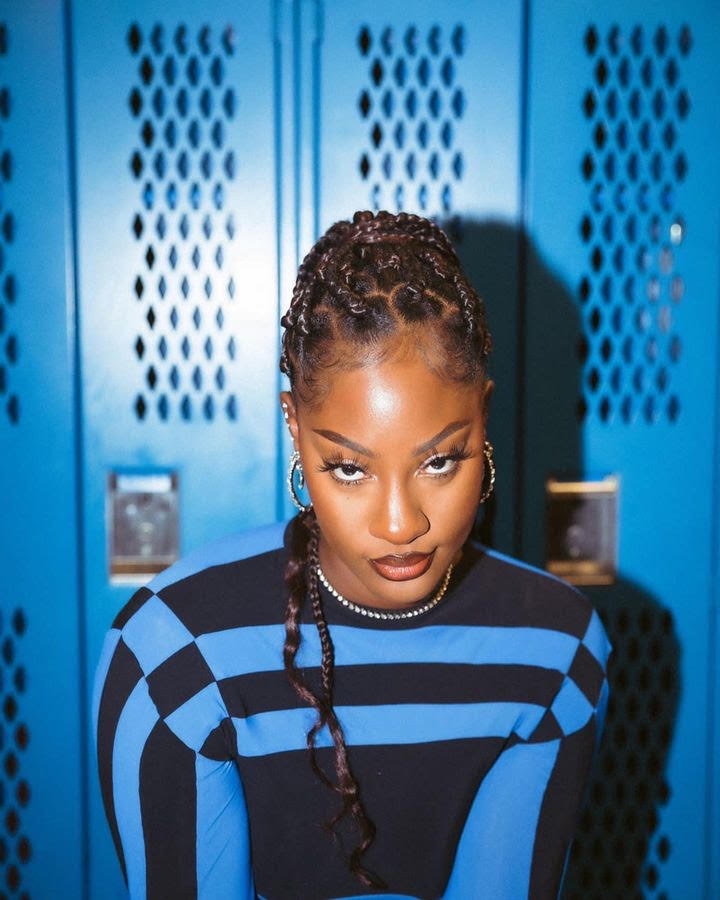When executives from across the United States and international markets convene in Nashville May 15-18 for the Music Biz 2023 conference, they will connect with a trade organization widening its reach, with a leader boasting credentials that are uncommon in the music industry.
Portia Sabin, who became Music Business Association president in September 2019, brings to her role a Columbia University doctorate in anthropology and education and savvy that she gained from a subsequent 13 years as president of the respected independent label Kill Rock Stars and eight years as host of music business podcast The Future of What.
It’s no wonder that Sabin has cultivated an esteemed fan club of music industry professionals, including the heads of other trade groups.
“Because of her background and her personality, she’s got analytical and creative skills to put fresh ideas out there, and she’s not afraid to push the envelope,” says Mitch Glazier, chairman/CEO of the RIAA.
“She remains focused on educating and improving this business, pushing for growth and inclusion while helping others to navigate the challenges that come with never-ending technological and economic change,” says Michael Huppe, president/CEO of SoundExchange. “I have a tremendous amount of respect for Portia as a strong and insightful voice in the music industry.”
Highlights of this year’s Music Biz conference will include four days of panels and workshops, keynote addresses by Kobalt founder and chairman Willard Ahdritz and leaders of the Black Music Action Coalition, as well as the second Bizzy Awards to recognize companies and individuals who are making a difference in improving the global industry. The 2022 Music Biz drew over 2,100 attendees from across some 750 companies, with 8% of participants coming from outside the United States.
“Running a label made me get very interested in the business of the music industry,” Sabin says of the road that led her to her Music Business Association role. “I was also on the board of A2IM [the American Association of Independent Music] for 12 years, on the board of the RIAA for a couple years, on the Recording Academy Board of Governors in the Pacific Northwest for six years and I also started a podcast about the music industry in 2014, so I had a lot of interest in the business itself.
“It’s a fascinating industry,” Sabin continues. “There’s a lot to know, and it’s also one of those weird ones where everybody thinks it’s easy from the outside until you get involved in it. We really saw that in the tech boom, starting about 10, 12 years ago, when all these tech people came into our sector saying, ‘I don’t know what your problem is. We can make lots of money,’ and then one by one they have disappeared. The only ones who stuck were the ones who bothered to learn and respect the music industry.”
Originally comprised of music wholesalers, retailers and distributors, the Music Business Association had already begun to broaden its scope during the tenure of James Donio, Sabin’s predecessor — a shift indicated in 2013, when the organization changed its name from the National Association of Recording Merchandisers (NARM) to the broader moniker it has today. Continuing that expansion was one of Sabin’s early priorities.
“We’ve made a concerted effort to be inclusive, to reach out to companies that are coming in, like tech startups, that are doing cool things and solving problems that people have,” Sabin says.
The music business, she notes, is “an ever-changing landscape, and I think it’s one of those things you have to be comfortable with when you set out to have an inclusive trade association.”
Today, the Music Business Association has several initiatives to more broadly serve the music industry. For example, the Music Biz conference has added programming that focuses on the touring and ticketing industry “because that part of our business has always weirdly been a little bit separate,” Sabin says. “I certainly found out when I was running a record label that that whole live side was sort of its own animal. The booking agents are over there, the promoters, the big talent agencies.”
But the pandemic highlighted the fact that the music business “is an ecosystem and we all rely on each other, and when one goes down, the whole goes down,” says Sabin of the live sector. “So we have made a big effort since 2019 to get those folks involved.”
The conference’s programming style has also evolved. “We have discovered the power of creating tracks for discussion,” Sabin says. “It helps people get more in-depth knowledge. If you’re going to do three panels on a topic, one right after the other and everybody is having the conversation together, that makes it stronger, so we’re doing quite a lot of tracks at this year’s Music Biz.”
MIDiA Research’s Tatiana Cirisano (center) at the UMG Mixer at Music Biz 2022.
Sabin’s desire for a larger tent extends beyond the types of companies that make up the Music Business Association. Achieving a more inclusive board “was a huge goal for me,” Sabin says. “It has taken us four years, but now we’ve gotten to 52% people of color on the board, 57% women, as well as a nice, wide range of diversity in company type. I think that’s also really important.”
“She formed a diversity, equity and inclusion committee pretty much immediately, so that was a core element of building and reconsidering the organization,” says Downtown Music Holdings chief marketing officer Molly Neuman, who recalls that Sabin’s early priorities included making the organization’s board more diverse and expanding the voices heard at its events. “That was in place when George Floyd was murdered and we had Blackout Tuesday and all the things that happened in the summer of 2020, so we already had this core unit considering these things for the industry, but we were also in a position to offer mutual support as well as long-term plans.”
That commitment to inclusion was illustrated recently when the Nashville-based Music Business Association issued a statement decrying anti-LGBTQ+ bills passed by the Tennessee Legislature.
Broadening the scope of the Music Business Association also includes an effort to increase the involvement of younger music professionals. “We have a programming track called #NextGen_Now, and we tried our first physical event with them [in March] in Nashville,” Sabin says. “We had a cocktail mixer and it was incredibly successful; they all had to be kicked out at the end of the evening because they were enjoying themselves too much, which is great.”
The association is also reaching students through its #NextGen_U initiative. Like its predecessor, NARM, the Music Business Association has continued to offer scholarships to help the next generation of music business executives.
“The programming that we did online for them was very successful over the pandemic and we continued to do those through as recently as February of this year,” says Sabin. “We think it’s easier for students to attend a two-day virtual conference for $39 rather than flying and getting a hotel room. We also have an academic-partner newsletter now that we send out monthly.”
Another recent Music Biz outreach echoes NARM’s almost-forgotten 1970s-era playbook — the Road Show.
“For the vast majority of our members, their clients are actually artists and musicians and Music Biz [previously] didn’t provide any forums for them to get in front of those people,” Sabin says. “So I put together what we call the Music Biz Road Show. We usually partner with a trade association in a city and go for a day and do a mini Music Biz, where we put on some panels, maybe a fireside chat and a cocktail hour. The local trade association brings a couple hundred local artists so our members get to get in front of their actual clients, the people who they actually want to meet. And we get to do educational programming for those folks. It has been very successful so far.
“We’ve had them in Atlanta, Portland, Ore., and Memphis and we have them coming up in Huntsville, Ala., New Orleans and Miami,” Sabin continues. “If my staff doesn’t kill me, I would like to have at least one a month.”
Amid such outreach, what are the priorities for this year’s expanded Music Biz conference?
“I think everyone is always interested in what’s coming next, so I think generative [artificial intelligence] is a conversation that people really want to have,” Sabin says. “Because our conference is crowdsourced, it’s really fun to see what topics come in over and over and which ones fall by the wayside.
“For example, we had the highest number of [programming suggestions] that anyone can ever remember receiving, like 326 proposals this year, and there was only one on [non-fungible tokens]. So you can tell that’s no longer of concern to the membership.”
But a perennial concern remains: “What are the revenue streams that are out there and how do we capture them? That is what the internet has done for the music industry; it has created boundless opportunities, with this scary downside of, ‘How do [creators] collect [revenue for their creations]?’
“I feel like the music business has always been playing catch-up to technology,” Sabin adds. “A new technology comes along and we spend 20 years figuring out how to get it monetized properly, and by that time another technology comes along. But it’s happening so much faster right now and I think that’s the central interest of our membership, and that’s really what we are.”
This story originally appeared in the May 13, 2023, issue of Billboard.



